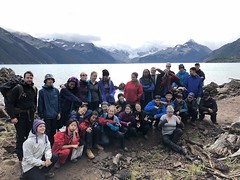The Great Book of Knowledge | CBC Ideas
Adding to our recent discussions of Howard Zinn’s look at Columbus’ meeting with the Arawak People, as well as our emerging inquiries into the nature and meaning of history, culture, and truth, this weekend’s homework listening is the recent CBC Ideas episode The Great Book of Knowledge (Part I). From the episode page:
We used to need libraries to make the sum of human knowledge available to all. Today we have Wikipedia, where the sum of human knowledge can be shaped by all of us. But can we trust it? Philip Coulter suggests that the collective mind is perhaps the best mind we have.
It features 30 million articles, in 287 languages. And it’s written and edited — for free — by 77,000 contributors around the world.
What did we do before Wikipedia? Well, if you wanted to know something, you looked it up in a book. And if you didn’t have the book yourself, you had to go to the library.
In the old days, books contained pretty much all the information there was. And they were written by “experts” — and that usually didn’t mean you.
But what if you knew something that the guy who wrote the book didn’t know? Or what if they were wrong? Well, too bad.
And then, along came the computer, and after that, the wiki. And everything changed forever.
In addition to finding a playable version of the episode on the page linked above, you may also download The Great Book of Knowledge in the iTunes store, or as an mp3 by clicking this link. Or this one right here. Those with i devices will find CBC Ideas in the Podcast Ap.
For Monday, have an outline and/or notes on the episode to discuss with the class. As well, you are invited to engage in discussion of various elements of the episode on the Talons Social Studies Twitter hashtag: #talonsSS.



